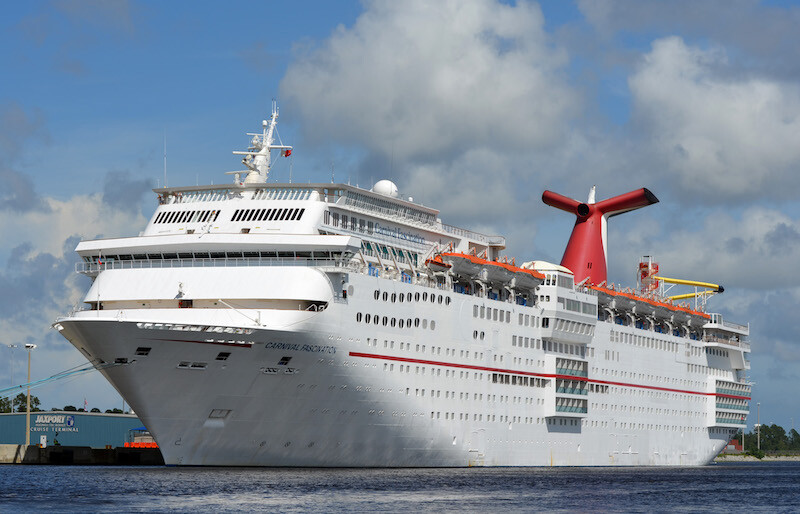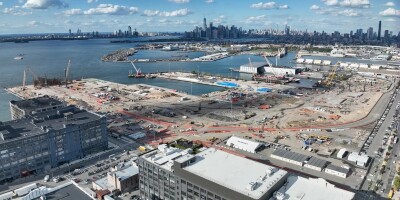The passenger cruise sector has implemented standards and safeguards that allow a vital part of the travel and hospitality industries to operate while managing health risks to vessel crew and passengers, the Federal Maritime Commission said in a report released earlier this month.
FMC Commissioner Louis E. Sola summarized this nearly two-year effort in the final report issued Jan. 14 on Fact Finding 30.
An FMC order issued in April 2020 authorized Commissioner Sola to serve as the Fact Finding Officer for Fact Finding 30 and directed him to examine Covid-19-related impacts to the passenger cruise vessel industry. Sola was also directed to identify private sector initiatives that could mitigate operational and economic effects on the cruise industry.
“The passenger cruise industry is a vital economic engine for ports and cities across the United States and is an important source of jobs for Americans from all walks of life," said Sola. "Shutting down ships for an indeterminate amount of time had a negative economic impact on the people who rely on cruise ships for income, or the ports and communities that benefit from vessel calls. Determining what needed to be accomplished to allow ships to sail and minimize risks to passengers and crews was a priority for the Fact Finding from its first day.”
The Final Report highlights the work Sola carried out over the course of the Fact Finding, the importance of the cruise and related sectors to cities around the U.S, and regulatory relief provided to smaller cruise lines, and all lines that serve the Alaska market. The report also provides an update on the status of a proposed rule amending the FMC’s regulations to clarify under what circumstances and how quickly a passenger can receive a refund for a voyage cancelled or delayed by a cruise line.
“I am pleased the Commission acted on the two regulatory reform proposals I put forward resulting from my work on Fact Finding 30. The responsiveness and support of my fellow Commissioners allowed us to provide needed relief and flexibility to small, U.S. flag cruise operators serving the Pacific Northwest," said Sola. "Furthermore, once implemented, our changes to the Commission’s regulations on financial responsibility will benefit cruise passengers due refunds when a cruise line cancels a voyage. I am also pleased to note that our efforts identifying the significant economic influence of the cruise industry on the Alaskan economy was useful to the Alaskan congressional delegation in their work crafting and quickly passing the Alaska Tourism Restoration Act in response to the Canadian government suspending all cruise vessel calls to Canadian ports.”
Over the course of the almost two-years he led Fact Finding 30, Sola pursued an ambitious, multifaceted agenda, the FMC said. He engaged in extensive outreach to many different communities, including elected officials at all levels of government, senior cruise line executives, port officials, small business organizations, trade associations representing industries impacted by disruption to the cruise industry, and organized labor.
Site visits and meetings with industry and government officials were carried out at ports in Alaska, California, Florida, Texas, and Washington. Sola provided briefings to Congress and senior White House officials. He repeatedly highlighted the need to vaccinate all mariners arriving in the U.S. who wished to be vaccinated and stressed the need to vaccinate crews of passenger vessels. Additionally, Sola issued six separate reports examining economic impacts to specific states and regions.
“Sensible and effective safety and health protocols can successfully minimize potential exposure to communicable diseases aboard a vessel, whether Covid-19 or some other pathogen," Sola said. "Ports and cruise lines have aggressively pursued creating the standards and infrastructure that allows ships to sail and be prepared to manage any health contingency that manifests itself. I hope to never see another no sail or conditional sail order issued."
The Centers for Disease Control and Prevention (CDC) recently affirmed that cruise ships and companies are generally subscribing to the conditional sail order that will soon expire. Once expired, the cruise industry intends to continue its voluntary compliance with the CDC framework, and the CDC will continue to provide oversight.
“We cannot live in a world where our only choices are to either move freely without risk or lock down ourselves and the economy. Covid is here to stay and we must learn to live with it. The system in place that allows cruise ships to operate is working to mitigate shipboard spread of Covid-19,” said Commissioner Sola.





